KATHMANDU: Pemba Dorjey Sherpa, who has already climbed the Mt Everest 20 times, has shown serious concerns about the mountain environment. Every year since 2000, he has been leaving his footprints on Mt Everest — the world’s highest peak. He has seen over the years how the mountain ecosystem of the Himalayas in and around the Mt Everest is deteriorating without putting a stop to that.
A complex of living organisms in Sagarmatha area right from the foothills up to the summit of Mt Everest constitute the mountain ecosystem here. Mountain lands provide a scattered but diverse array of habitats — a large range of plants and animals. Treeless alpine vegetation adorns the higher altitudes here while lower slopes are covered by ‘montane’ forests. Pemba recalls, “There used to be no water in the Everest Base Camp (EBC) before but now I spot them on the foothills possibly as a result of climate change.”
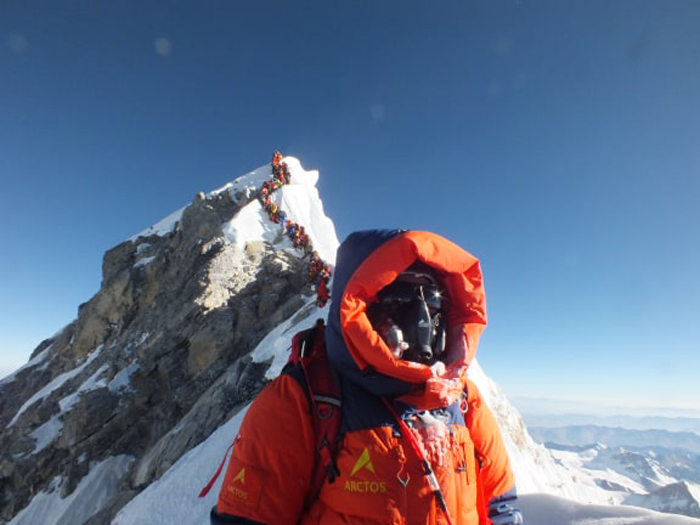
It demands an ecological study to find out how flora and fauna here are interacting with their physical environment of the mountain. He recounts further how his father, Chiring Norbu Sherpa, a team member of mountaineering expedition of Tenzing Norgay Sherpa and Sir Edmund Hillary, were required to wear mountaineering boot to climb beyond the elevation of 4000m because of deposition of heavy snow. But now, mountaineers climb up to the elevation of 6500m wearing just sports shoes. He gave the testimony of the damaging effect of climate change while talking to Khabarhub.
Sherpa seems unhappy on all the politics being played in the name of Mt Everest cleaning campaign. Every year, millions of rupees are collected for Everest cleaning campaign, but “I don’t see any improvement in sanitation and in overall mountain environments here,” rues Pemba Dorjey Sherpa. “It hurts me when they claim of collecting more tonnage of garbage than they actually did and what is more shocking is the fact that mainstream media carried the same fudged data of inflated tonnage of garbage collection,” adds Pemba with a tinge of surprise, “What a show the present government is making by launching a cleaning campaign on Mt Everest even as climbing season is on peak and will continue to be so before monsoon breaks in Nepal! How can one collect garbage when tents are all around more so on the very place garbage is lying under? Mountaineers get apprehensive of the intent and motive of the new faces who appear suddenly claiming to collect garbage from their tents and cases of stealing and theft of mountaineering gears and other such expensive items are not unheard of.”
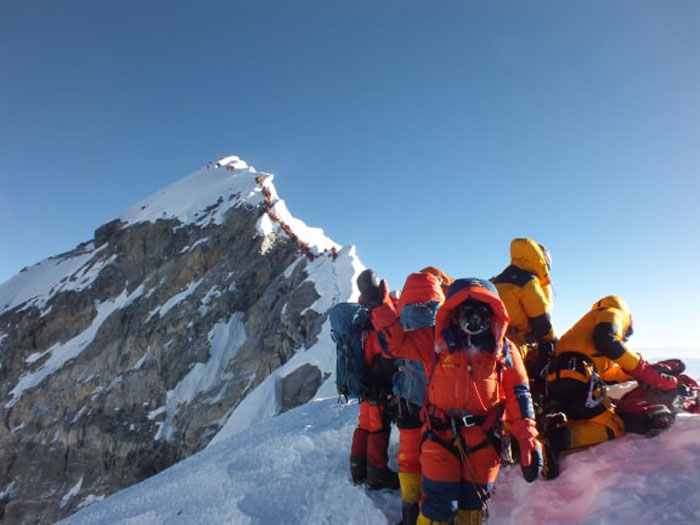
In fact, what the government is required to do is to give a rest to Mt Everest by not exposing or showcasing it to visitors or tourists. This is a much better way for restoring the lost mountain ecosystem to improve if not restore it completely instead of launching a cleaning campaign in such a haphazard manner. The government, he suggested, should start the Everest cleanup campaign two months before the climbing season starts, with the help of locals and those who are experts in mountaineering.
He adds further, instead of deputing laymen executives at base camp, the government should deploy the mountaineering experts or Nepal Army personnel as staffs and liaison officers. He blames that civil servants generally do not prefer to stay at the base camp and do not even bother to keep themselves abreast with latest news and views regarding mountains, expeditions and mountaineering teams along with mountain ecology. He has alternatives to suggest to Nepal army, which a team of about 150 people has considered experts in expeditions, who can climb up to Camp 3 with ease and also help collect the information regarding strewed garbage and wastes on Mt Everest.
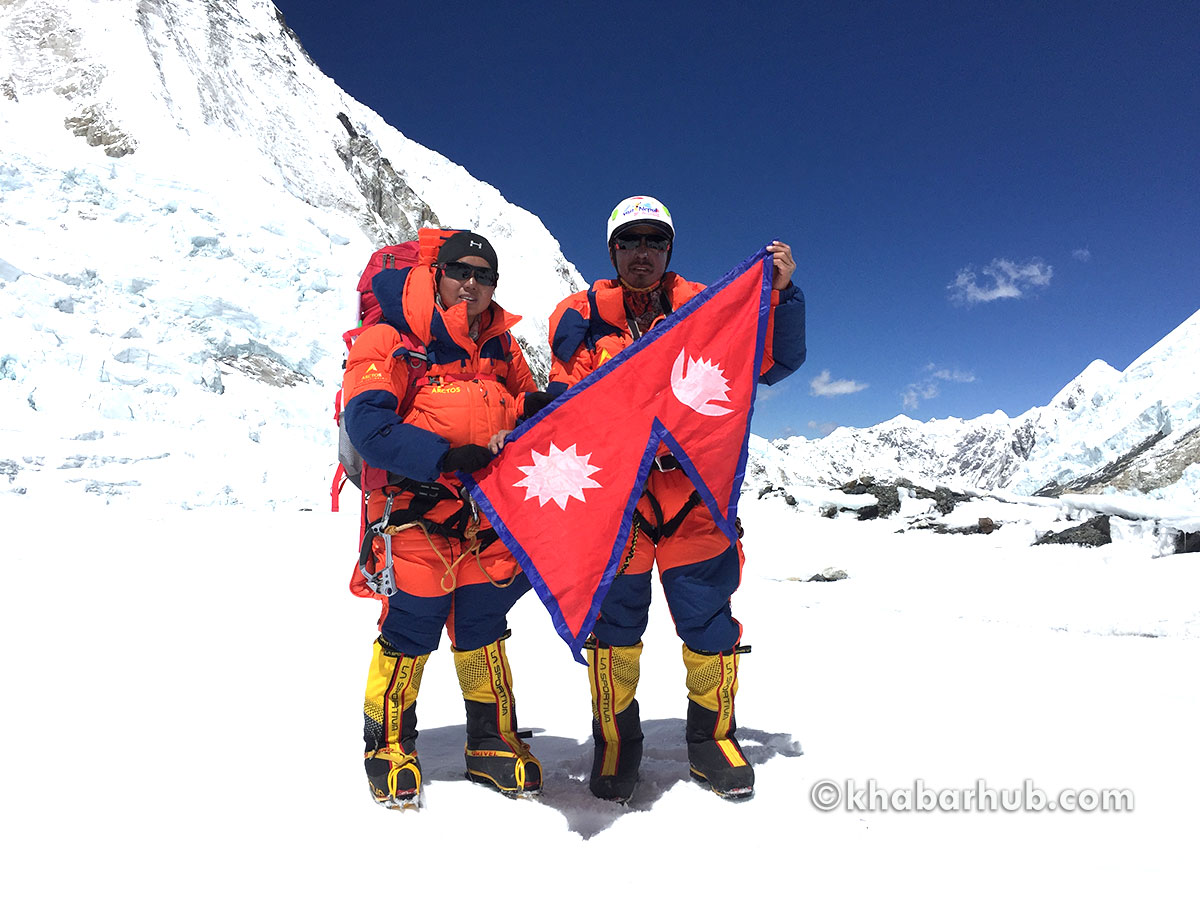
No doubt prevention is always better than cure but who listens, laughs Pemba Dorjey on mountaineers getting inured with littering the place seeing others do the same. He wonders how come the garbage and wastes littered during the time when Tenzing Norgay Sherpa and Edmund Hillary had climbed the summit of Mt Everest are still being found and hence collected.
Talking to Khabarhub, Sherpa denies the rumors of death caused by much-publicized traffic jam in Mt Everest this year. He does not deny the jam on the trail but does not accept it as the reason for climbers’ death. Poor management due to the negligence of all the stakeholders has caused the jam — call it a traffic jam on the mountain as Nepal government does not have an accurate weather forecasting system to warn the climbers in advance of sudden weather change, reasons Pemba.
“The government says it is going to be a sunny day in Everest but it turns out to be snowfall”, he speaks in a satirical tone on how Nepal’s Meteorological Forecasting Division works. “Therefore, we must follow the foreign weather forecasting, he advises. This is why all the climbers keep waiting for the best weather to resume their climb on Mt Everest. This year we could get only a few days as good weather to climb the mountain. There is no way to postpone one’s own climb for other days and that created a jam for the whole world to see, explains Pemba. However, we tried to manage to reduce the traffic in Everest dividing the numbers of climbers into different groups but it didn’t work as numbers of climbers this year were higher than before,” Pemba continues.
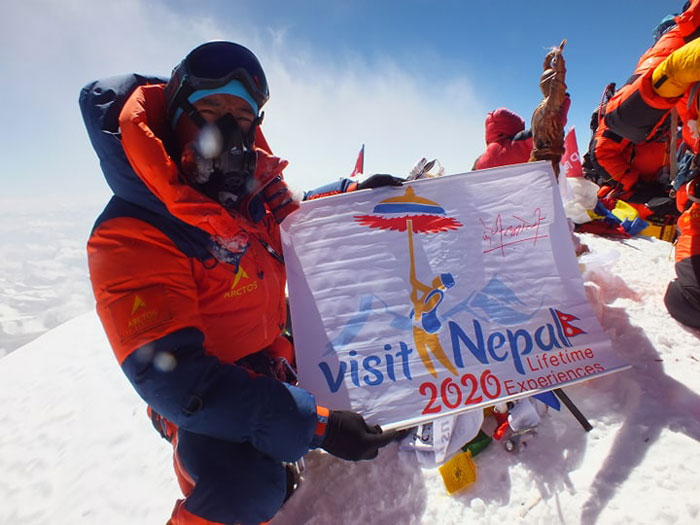
The government issued a record number of 381 permits to climbers this year to climb Mt Everest. All together along with the Sherpas who help the climbers, numbers of license increased up to around 600.
He argues that no one gets to die in any traffic jam unless there is chaos in the stampede. He likens it with snarl-ups on motorways or traffic jam on ‘road red light’. He questions, who dies in traffic on road? Yes, you get late but does not die, he ridicules the much-publicized hypothesis of the cause of death on Mt Everest this year. I am the team leader, I know well that even other side effects of mountaineering such as frostbite, cold infection in hand and finger, snow bite, snow blindness, and other such things do not claim human lives.”
“We carry an oxygen cylinder even while we descend from 8000m to the base camp lasting for 16 to 18 hours. While standing in route to the summit or to the base camp, we regulate the oxygen flow just like the speed of vehicle caught in traffic on road to save the fuel,” he said. An inexperienced guide leading a team of climbers does not understand that oxygen must be saved in a cylinder to inhale it at the top of Mt Everest — the summit, absence of which will asphyxiate the climbers to death, according to him. Thus, mountain guides must not allow the climbers to finish all the oxygen they are carrying on the way to the summit and left with nothing when they reach the top of the world’ explains Pemba by cautioning, “again there are novice climbers who are unable to walk due to exhaustion or injuries in leg. They are the ones who may die because of the sudden physical challenges posed before them and they find themselves mentally weak to face them. Sudden change in mountain weather like a windstorm, glacier break, and ice fall is the potential cause of death. We should identify other valid causes of death of climbers instead of projecting traffic jam as the main cause of it.”
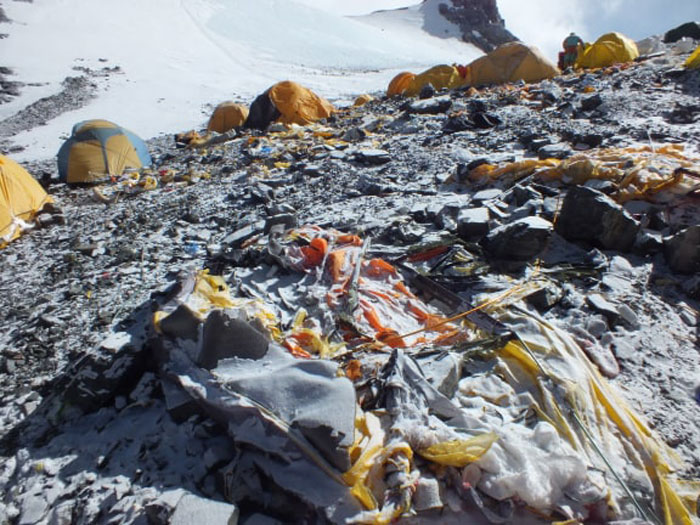
This year Mt Everest claimed 11 lives till the reporting of this report. “It is no more an adventurous thrill nowadays to climb the Mt Everest as ice cover has gone to a major extent, trails on the mountain are well formed and the company of experienced mountaineering guides with latest climbing gears and technology put the climbers in ease while scaling the mountain,” informs Pemba. The latest media — visual, print and social media has popularized the events and stories relating to Mt Everest. The government of Nepal is being aided as Mt Everest is getting more exposure adding to its marketing value from tourism viewpoint. Pemba says, how excited he had felt when his name was announced in radio after scaling the Mt Everest after reaching the summit for the first time but no one can post one’s own news anywhere you want in social media later picked by mainstream media. He desperately wanted his name announced in radio as it was the potent medium to achieve fame.
He considers his father as his Guru and master because he learned the skill of mountaineering from him. In those times, there were no other viable alternatives to earn livelihood and mountaineering came easy to my father and other villagers living in Gaurishankar Rural Municipality, Dolakha located at the altitude of 4200m. Potatoes are grown here as a staple crop.
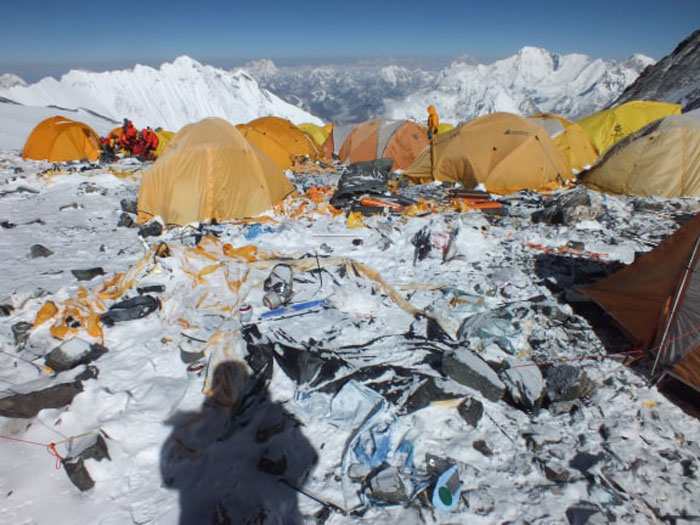
Pemba Dorjee Sherpa, born on 19th April 1977, is carrying the baton of being a skilled mountaineer handed over to him by his forefathers. He is currently holding the record of ‘fastest person to climb Mount Everest’. Pemba climbed Mount Everest in 8 hours 10 minutes on May 21, 2004. Pemba holds four other world records in mountaineering, duly recognized and certified by Guinness Book of world records. He is eyeing on another world record of scaling Mt Everest for the highest number of times by any summiteer.
His spouse, Kanchhi Maya Tamang and Pemba himself have successfully climbed Mt Everest for the third time. He loves the ambiance of mountains full of snow and cold. He is a man of mountains and wants to climb more at least 5 more times in next five years to reach his tally 30 — that is scaling the Mt Everest for 30 times if not more. He is sure his dream will come true. “Mt Everest is our pride, prestige, and mother, we must preserve it,” Pemba mutters in a prayerful spirit.



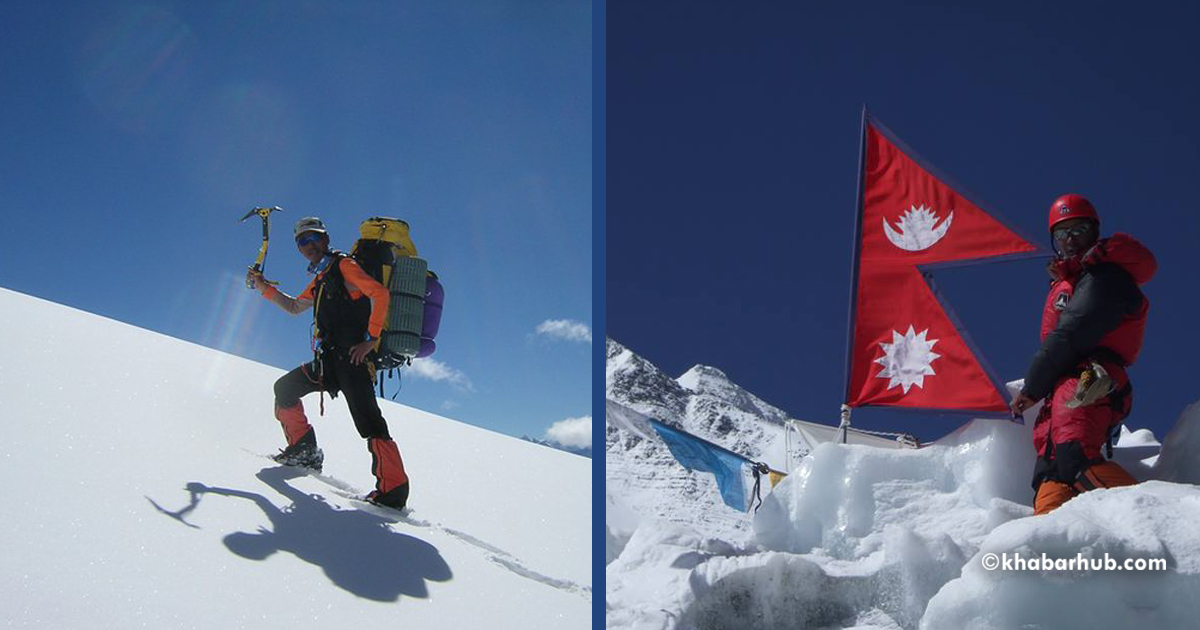


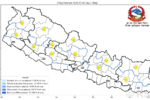



Comment